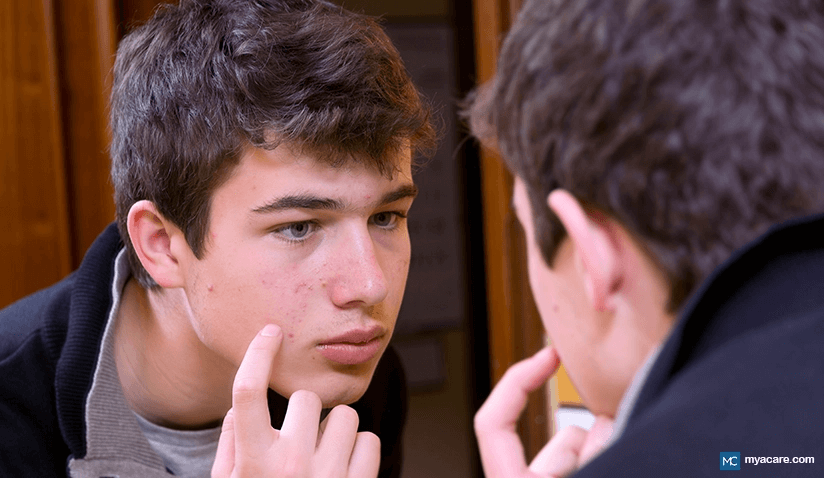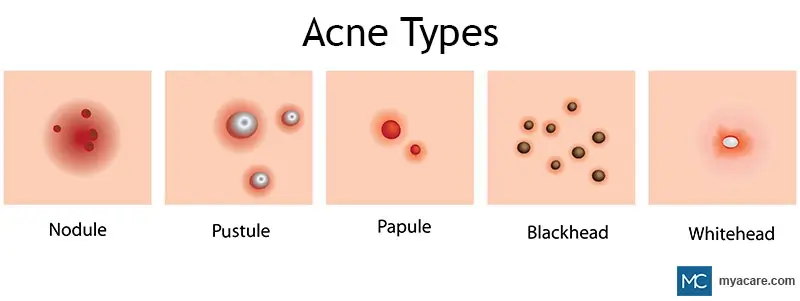Understanding Acne: A Guide for Kids, Parents, and Caregivers

Sometimes children have questions about their health. Therefore this article was written as a resource for parents, teachers or caregivers, to help explain acne to children. If you are a minor, please make sure you read this with the supervision of an adult.
The journey towards clear, healthy skin begins with understanding why acne appears and how to prevent it. If you have ever wondered why those bumps and blemishes appear on your skin, you are not alone. This article explores the factors that contribute to acne, the role of hormonal changes, genetics, lifestyle, and more.
When you learn about what causes acne, you will understand what is involved in its prevention and treatment. This will help you keep your skin clear and healthy. We have put together this guide to help you understand what acne is and why it happens, and also provide practical tips for preventing breakouts. We want you to feel confident and informed about your skin so you can take control of your well-being.
What is Acne?
Acne is a common skin condition that many kids and teenagers experience as they grow up. It often appears as small, red bumps on the face, neck, chest, and back. While it might feel frustrating, it is important to remember that you are not alone – many kids go through the same thing. Several causes can lead to acne, including hormonal changes, genetics, stress, poor hygiene, and diet.
Although the two terms are often used interchangeably, acne and pimples are not the same. Acne is a skin condition that can cause different types of problems on your skin. A pimple is one specific type of problem that can happen with acne.
Types of Acne
There are various forms of acne, from minor to severe. These include whiteheads (closed comedones), blackheads (open comedones), papules, pustules, nodules, and cysts. The type of acne you have will determine the best approach for treatment.

Why Do Kids Get Acne?
Several factors may contribute to the appearance of acne during puberty. Here is a general overview:
Hormonal Changes
Hormonal changes during puberty are one of the main reasons kids get acne. Oil production in the skin may increase as a result of these changes, clogging pores and resulting in outbreaks.
Genetics
How likely you are to get acne might be influenced by your genetics. You could be more prone to acne if your parents or siblings had it in their time.
Stress
Feeling stressed out? It turns out stress can contribute to acne. Your body releases hormones during times of stress that may increase the amount of oil your skin produces.
Poor Hygiene
If you do not wash your face regularly, oil and grime can accumulate on your skin, which can worsen acne. Developing good hygiene habits is essential for healthy skin.
Diet
While eating junk food does not directly cause acne, a balanced diet rich in whole grains, vegetables, and fruits can help keep your skin healthy. Drinking sugary beverages or eating oily food might worsen breakouts for some people.
How Can You Prevent Acne?
There are several things you can do to prevent acne:
Practice Good Hygiene Habits
Use a gentle cleanser to wash your face twice daily, and use oil-free, non-comedogenic (that do not block or clog pores) moisturizers to keep your skin clean and healthy.
Drink Plenty of Water
Your skin and general health benefit from staying hydrated. Drinking water helps flush out toxins and can contribute to clearer skin.
Exercise Regularly
Physical activity helps improve blood circulation and can contribute to healthy skin. Just be sure to shower after exercising to prevent sweat from clogging your pores.
Eat a Healthy Diet
A balanced diet rich in whole grains, vegetables, and fruits can support your skin health.. While there is no specific "acne diet," making nutritious food choices can make a difference.
Avoid Touching Your Face
Touching your face frequently can spread bacteria and dirt, worsening outbreaks. Try to avoid the impulse to touch your face throughout the day.
How Can You Treat Acne?
Common treatment options for acne include:
- Over-the-counter medications
- Prescription medications
- Natural remedies, and
- Professional treatments
Over-The-Counter Medications
Products containing benzoyl peroxide or salicylic acid can help unclog pores and reduce inflammation. These are available at most drugstores.
Prescription Medications
For more severe acne, a doctor might prescribe topical or oral medications to help control breakouts and prevent scarring.
Natural Remedies
Some natural ingredients like tea tree oil, aloe vera, and witch hazel have been shown to help with mild acne. However, it is important to consult with a doctor before trying any natural remedies.
Professional Treatments
Dermatologists can provide treatments like chemical peels, laser therapy, or extractions for more stubborn or severe cases of acne.
Conclusion
Acne is caused by clogged pores, often due to hormonal changes during puberty. It is a common skin condition that can be managed by good hygiene, a healthy lifestyle, and appropriate professional treatments.
If you are struggling with acne and it is affecting your self-esteem or causing discomfort, do not hesitate to reach out to a doctor or dermatologist for guidance.
Remember, acne is temporary, and with the right care and patience, you can achieve clearer, healthier skin. Focus on building good habits, taking care of your overall health, and seeking professional help when necessary. Your skin is just one part of who you are - your confidence and kindness matter more.
Understanding acne is the first step toward managing it effectively. By following these tips and taking care of your skin, you are on the path to clearer days ahead.
To search for the best health providers for dermatology in Croatia, Germany, Greece, Italy, Malaysia, Singapore, Slovakia Spain, Thailand, The UAE, the UK, and the US, please use our free search engine.

Dr. Rosmy Barrios is an aesthetic medicine specialist with international work experience. She earned her physician diploma at the Universidad Del Norte’s School of Medicine in Barranquilla, Colombia, and her specialty at John F. Kennedy University in Buenos Aires, Argentina. Dr. Barrios is a member of the Pan-American Aesthetic Medicine Association (PASAM) and the Union Internationale de Médecine Esthétique (UIME). She is an expert health writer with keen interests in aesthetic medicine, regenerative aesthetics, anti-aging, fitness, and nutrition. Currently, Dr. Barrios heads the Regenerative Aesthetics department at a renowned Internal Medicine clinic based in Belgrade, Serbia.
References:
Featured Blogs



